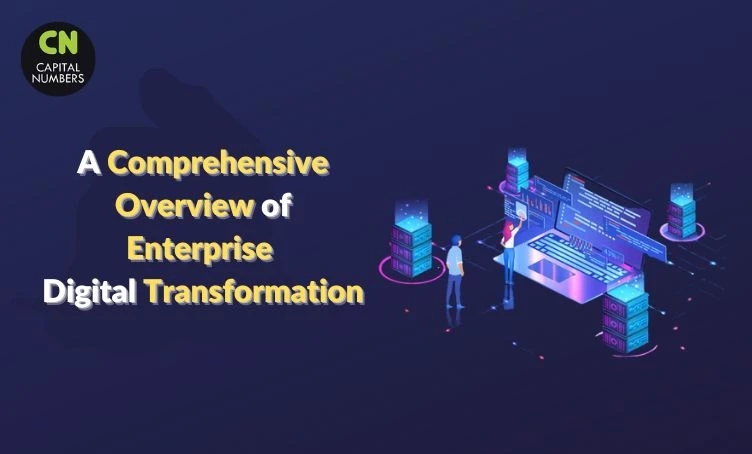How often have you felt stuck with inefficient processes and systems in your organization? What if you could leverage digital transformation to truly revolutionize how you do business? It is the phenomenon of using digital technologies to build new or modify existing business processes, customer experiences, and cultures. It involves reshaping an organization's operations, products, and services to meet changing market demands. Digitization can dramatically increase efficiency, reduce costs, improve customer satisfaction, and open up new revenue streams.
Despite having larger potential budgets and an abundance of resources, it is often difficult for large enterprises with thousands of employees globally to transition into a digital business. Such endeavors are no small feat and require thoughtful preparation.
Although it may appear daunting, digital transformation within the enterprise is achievable and beneficial. So how can Chief Technology Officers (CTOs) and Chief Information Officers (CIOs) position themselves to make the most of innovation while still cutting costs?
What Is Enterprise Digital Transformation?
Enterprise Digital Transformation (EDT) is the practice of transforming a company’s core processes, technologies, and strategies to leverage digital technology. EDT includes the use of new tools and technologies (including cloud-based solutions), changes to organizational structure, process optimization, and new customer experience initiatives. Digitalization has become an essential element for many organizations as it enables them to stay competitive in today’s rapidly changing market.
Given the importance of digitalization, enterprises can take advantage of digital transformation services to guide their transformation efforts. Such services include everything from developing custom applications that improve business processes to migrating data and systems into the cloud. They also support other aspects associated with enterprise digitalization, such as user experience (UX) design and data analytics.
Benefits of Enterprise Digital Transformation
The benefits of digitizing your business are numerous. Digitization enables companies to become more efficient, reduce costs, and increase customer satisfaction levels. It also creates opportunities to enter new markets or expand current ones by providing better products and services.
The following are some of the key advantages Digitalization can provide:
Business profitability and flexibility:
It can help make businesses more profitable by eliminating manual processes and by streamlining operations. It makes it easier for companies to quickly adapt to changing markets as they have access to real-time data and insights.
Customer engagement:
It enables organizations to create unique experiences that engage customers and prompt them to become repeat buyers. It allows companies to identify customer needs, preferences, behaviors, and trends in order to develop personalized experiences.
Cost savings:
It eliminates the need for physical infrastructure such as servers or hardware and makes it easier for remote teams to collaborate on projects regardless of their locations. Digital technology also eliminates the need for paperwork and manual labor, resulting in cost savings associated with staff time and resources.
Data-driven decision-making:
Data is a powerful tool, and digitization provides access to real-time data that allows companies to make informed decisions. Data analytics can be used to uncover customer insights and identify opportunities for improvement. Digital transformation also enables organizations to test new products, pricing strategies, or marketing campaigns before launching them on a full scale.
Empower the global workforce:
It enables organizations to access global talent pools and allows them to leverage the expertise of employees from anywhere in the world. Digital technologies make it easier for companies to deploy solutions faster, making it possible for teams to collaborate on projects regardless of their location.
Conclusion
In conclusion, digitalization is an essential process for companies looking to stay competitive in the ever-changing business landscape. It enables businesses to increase efficiency, reduce costs, and empower their workforce. It also creates opportunities for new customer experiences and provides access to real-time insights that allow for data-driven decisions. Digital transformation services from external providers or internal sources can be utilized to help organizations quickly capitalize on digital technology and create innovative solutions while still cutting costs.
Capital Numbers can help you with this. Their team of experts has a deep understanding of digital technologies and can provide you with up-to-date knowledge on the latest digital trends in order to help your business stay competitive. They can help businesses save costs, increase efficiency, and create engaging customer experiences. To know more about its services, book a call today!



